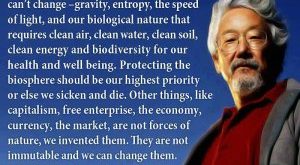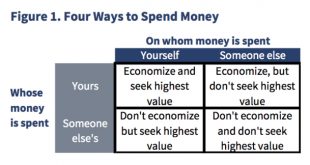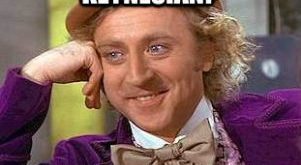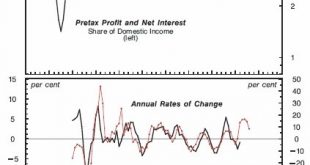from Peter Radford Elections Matter … Right? Well, only if those being elected have an inkling of what their constituents actually want. And it seems that, here in America at least, there is a considerable gulf between what those who are elected think are the key issues and what those who do the electing think of as the key issues. The lack of overlap is distinctly upsetting. We are constantly being told that the US is a relatively conservative nation. This is why some of the...
Read More »Dystopia and economics
from David Ruccio It’s not the best of times. In fact, it feels increasingly like the worst of times. I’m thinking, at the moment, of the savage attacks in Pittsburgh (at the Tree of Life synagogue) and Louisville, Kentucky (where 2 black people were recently gunned down by a white shooter at a Kroger store) as well as the election of Jair Bolsonaro (who represents, in equal parts, Rodrigo Duterte and Donald Trump) in Brazil. So, it seems appropriate to change gears and, instead of...
Read More »The World Bank’s annual report and the reemergence of elite theory
from Jorge Buzaglo and the current issue of the RWER The World Development Report (WDR) is the World Bank’s annual report on the state of the world economy and crucial economic development topics. However, the 2017 version was atypical because the WDR (World Bank 2017) focused on politics, not the economy. The report, “Governance and the Law,” is symptomatic, not only because of its defection from economics but also for the type of political theory it utilizes. The WDR straying from...
Read More »Economic reality — a virulent virus afflicting mainstream economics
from Lars Syll The WHO today warned of a virulent new virus affecting vulnerable groups in the Mid‐West and Eastern USA. The outbreak, which began in the Mid‐West’s extensive Great Lakes “Freshwater” river system, has recently jumped the “Saltwater” barrier, meaning that the entire population of its target species—“Mainstream” economists—is now at risk. Speaking on behalf of the WHO, Dr Cahuc explained that the virus works by turning off the one genetic marker that distinguishes this...
Read More »Wren-Lewis — the flimflam anti-pluralist
from Lars Syll Again and again, Oxford professor Simon Wren-Lewis rides out to defend orthodox macroeconomic theory against attacks from heterodox critics. In one of his latest attacks on heterodox economics and students demanding pluralist economics education he writes: The danger in encouraging plurality is that you make it much easier for politicians to select the advice they like, because there is almost certain to be a school of thought that gives the ‘right’ answers from the...
Read More »Red Scare 2018: socialism and healthcare
from David Ruccio A specter is haunting the United States—the specter of Medicare for All. All the powers of old America have entered into a holy alliance to exorcise this specter: Wall Street and Big Pharma, Trump and McConnell, Fox News and the American Enterprise Institute. Now, “coincident with the 200th anniversary of Karl Marx’s birth—and, more important, on the cusp of the 2018 elections—the Council of Economic Advisers has joined the alliance: socialism is making a comeback in...
Read More »Dean Baker – Constellations Promo
Constellations - The debut solo album by Dean Baker. Released on Avalon Records http://www.galahadonline.com http://www.oskar-cd.com.pl https://deanbaker.bandcamp.com/releases
Read More »‘The backward art of spending money’ by Wesley C. Mitchell.
In 1912 Wesley C. Mitchell, Veblen’s best student and one of the three or four most important economists of the first half of the twentieth century, published ‘The backward art of spending money’ (the link will directly download the article) in the American Economic Review. The article is about the (monetary) problems housewives encounter when they have to manage a household and a family and having scant time and money to do so. It is related to the present day Levy institute ‘time...
Read More »Simon Wren-Lewis’ warped view of modern macroeconomics
from Lars Syll There is something that just does not sit very well with Oxford macroeconomist Simon Wren-Lewis’ view of modern macroeconomics. On more than one occasion has this self-proclaimed ‘New Keynesian’ macroeconomist approvingly written about the ‘impressive’ theoretical insights New Classical economics has brought to macroeconomics. In one of his latest blog posts he once again shows how devoted he is to the Chicago übereconomists and their modelling endeavours (emphasis...
Read More »Can capitalists afford recovery? A 2018 update (2 charts)
from Shimshon Bichler and Jonathan Nitzan In our work, we’ve argued that, contrary to the conventional creed, capitalists dislike recovery. Their main driving force, we’ve claimed, is not the absolute level of their income, but its distributive share, and this later emphasis has far-reaching implication. Whereas the absolute level of capitalist income correlates with the absolute level of economic activity, the distributive share of that income depends on capitalist power. And in the...
Read More » Real-World Economics Review
Real-World Economics Review






